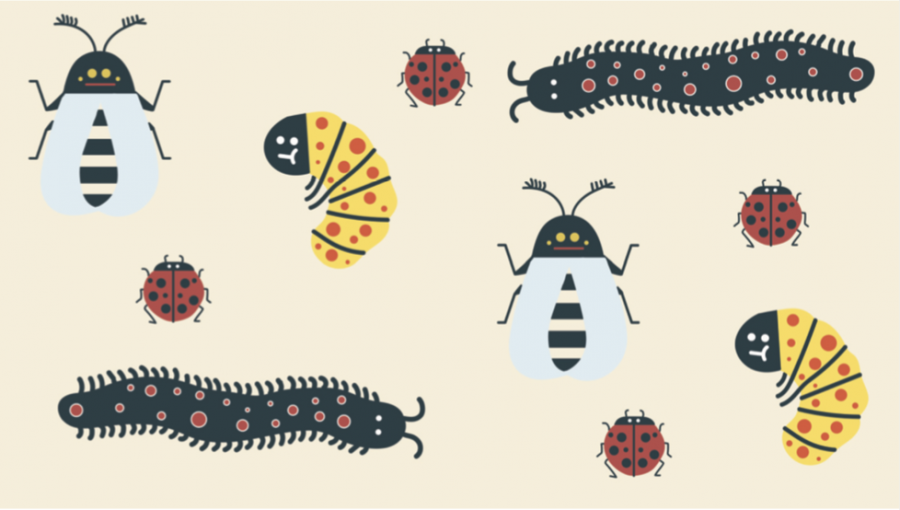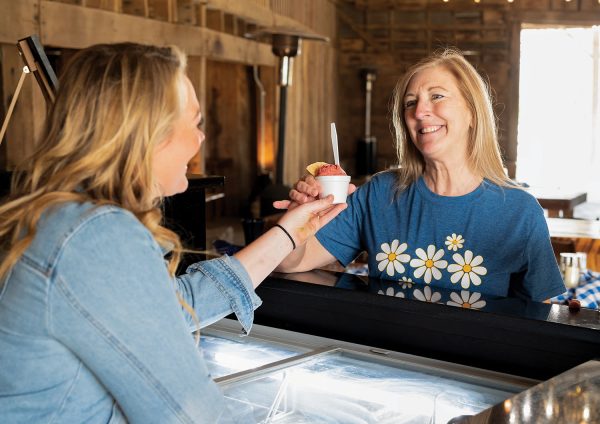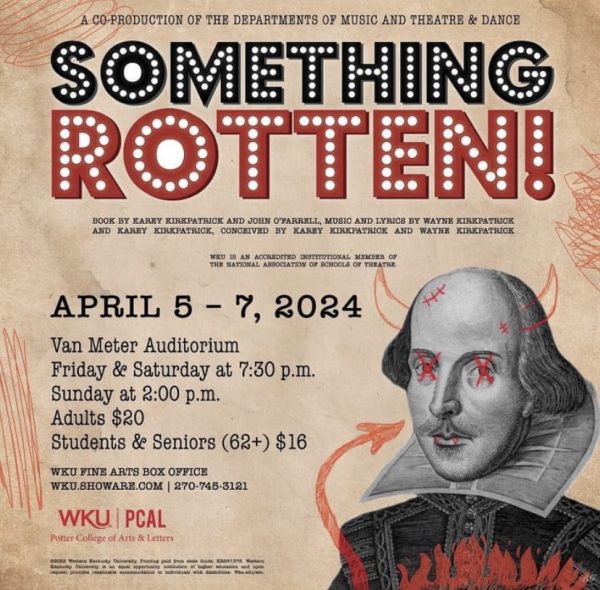Crazy credits: Class utilizes outdoors, teaches all things insects
December 3, 2019
Many classes at WKU are outside of the norm and capture the interest of those curious enough to give them a chance. One class studies some of the most feared and notorious creatures on earth: insects.
BIOL 325, or Insect Biodiversity, is a course taught by Keith Phillips which examines the ins and outs of bugs and their habits.
“In the class, we try to cover everything about insects,” Philips said. “We talk about insect morphology, diversity, evolution, physiology, behavior, defenses, lifestyles and pretty much everything that insects do. I make sure I cover all the cool stuff — all the whacked-out things you would never think about that insects do.”
Philips has been capturing and studying bugs since he was 7-years-old. He said his passion for insects has only grown as he’s gotten older, which is ex- pressed to all students who take the class.
Class sizes are small and open only to biology majors, offering 14-16 slots, due to the extensive research and various activities students partake in, including labs, field trips and making a personal bug collection. This semester, the class took trips to Shanty Hollow Lake and a biological preserve located in Hart County called the WKU Green River Preserve.
Field trips involved trap setting, black lighting and simply observing insects in their natural habitats. Senior Jacob Carroll said looking for insects at the preserve helped him understand their behaviors better than ever before.
“That was a really cool experience,” Carroll said. “I’ve learned that there is a lot more than I thought there was when it comes to insects.”
Class labs are dedicated to observing different aspects of insects. Labs include everything from arthropod diversity to insect taxonomy and analysis of internal and external features of insects.
Philips said students tend to like the labs due to their hands-on nature, as many involve him bringing in piles of live insects which vary each year. Philips expressed the importance of the bug collection and how they’re captured.
“We capture them, but we also try to watch them and see how they live,” Philips said. “The insect collection is something many people enjoy and also something that they can learn from with biodiversity.”
Senior Emily Anderson said though some might view a bug collection as unappealing, it’s a necessary part of the course.
“That sounds very off-putting, because you have to keep jars of bugs in your freezer,” Anderson said. “The teacher is really nice and wants you to learn, so just have fun with it.”
Despite the class’ unusual subject matter and exciting features, it’s still a 300-level course, which comes with challenges and hard work. Senior Kaitlyn Menser said the class is rewarding so long as students pay it the time and effort it requires.
“I’ve learned so much about many processes and made many new friendships in class, as well,” Mesner said. “Do take time to study, however. The knowledge will not come without effort from your end. Coming to class, taking notes and going on sampling trips [are] the main three keys to succeeding.”
This class employs a special approach to teach special material, providing an opportunity to learn about an easy-to-overlook part of our connected ecosystem.
Features reporter Gabby Bunton can be reached at [email protected].



















![Megan Inman of Tennessee cries after embracing Drag performer and transgender advocate Jasmine St. James at the 9th Annual WKU Housing and Residence Life Drag Show at Knicely Conference Center on April 4, 2024. “[The community] was so warm and welcoming when I came out, if it wasn’t for the queens I wouldn’t be here,” Inman said.](https://wkuherald.com/wp-content/uploads/2024/04/smith_von_drag_3-600x419.jpg)






